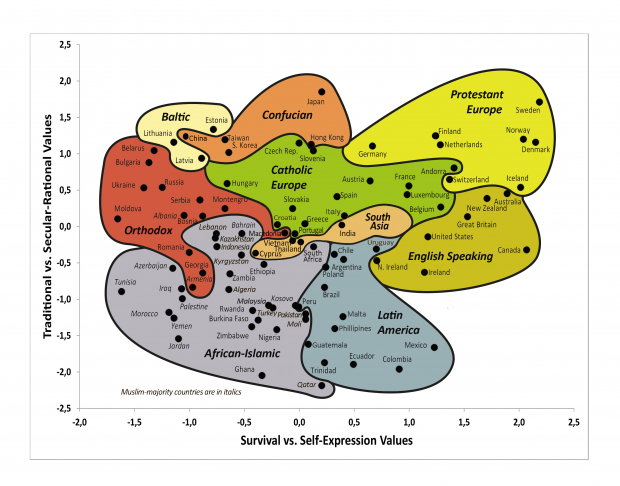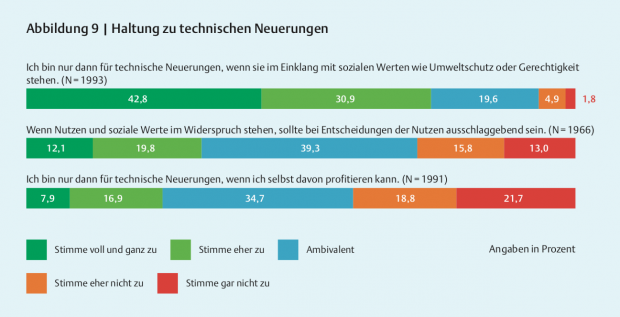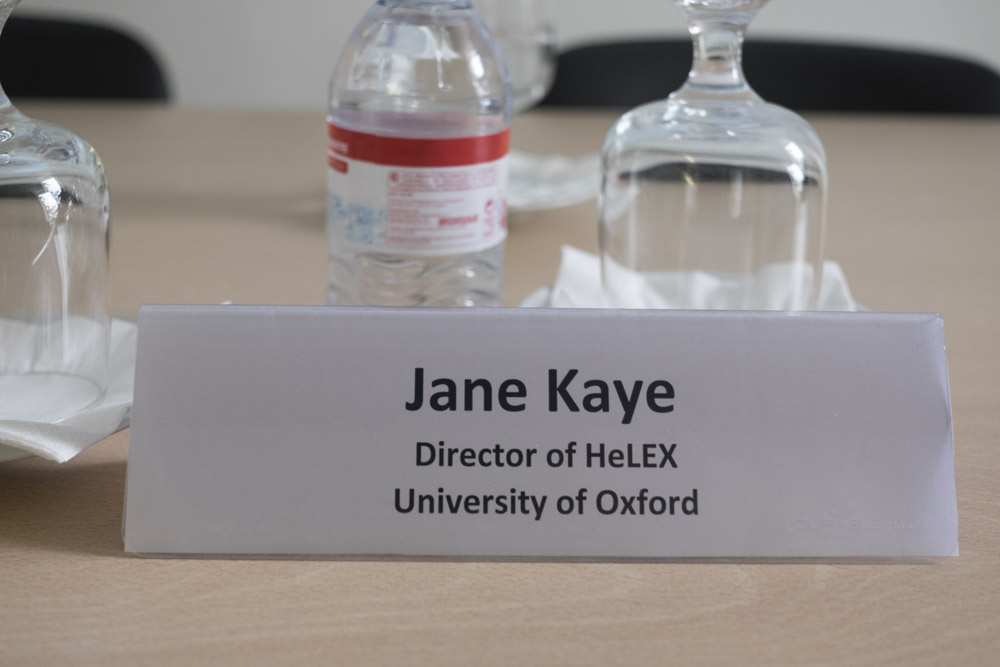When I moved from the theological seminar to the medical faculty of Marburg University, I expected to move from a rather liberal but largely closed belief system to a rational environment where belief does not play a central role. It took me only a few years to recognize my misunderstanding. Medicine represents an even more closed belief system („peer review“) than I encountered in theology. There are so many assumptions in daily medical practice that have never been formally tested.
It is commonly assumed that genetic testing is ready for widespread use. But is it true? The authoritative Stanford Encyclopedia of Philosophy has in an excellent contribution about the ethics of belief that there is a „cluster of questions at the intersection of epistemology, philosophy of mind, psychology, and ethics“. And even more
Contemporary analytic philosophers of mind generally use the term “belief” to refer to the attitude we have, roughly, whenever we take something to be the case or regard it as true. To believe something, in this sense, needn’t involve actively reflecting on it: Of the vast number of things ordinary adults believe, only a few can be at the fore of the mind at any single time … Forming beliefs is thus one of the most basic and important features of the mind, and the concept of belief plays a crucial role in both philosophy of mind and epistemology.
Do you want to know your full genome sequence? And do you want it to be published on the internet? Or do you think this is private information that should stay within your body cells where it had been encrypted since the origin of humans? Before we look at any belief surrounding genetic testing, we may have to take a small side-step. Yes, of course, we are dealing here in the first instance with a large industry that has strong commercial interest in genetic testing. Equipment companies selling chemistry and scanners want to increase their sales figures. Insurance companies need data for their policy calculations. Doctors and hospitals want to maximize their income by customer retention. Universities want to increase their attraction by showcasing fancy technology. Even patient advocacy groups are not neutral as they act in the presumed interests of their members. While any of these interests may be good or bad, it is worth to note that the discussion is driven by commercial interests and not ethical convictions.
Having said that, we probably all agree that genetic testing is a research method: useful, interesting and promising to classify, prevent, predict, or treat disease ,. But even after many years it is still a research method of unclear scope, unclear benefit and unclear risks. Should genetic testing really been applied outside of supervised research just because of the economic pressure surrounding it?
I can not see so much benefit of DTC genetic testing right now while there are disturbing case studies how „ordinary humans“ are getting confused when genetic testing is done outside of a research setting. These reports show not only a crude misunderstanding of the predictive value of single nucleotide variants but also a plethora of adverse reactions on nagging questions that are posed but never answered. Some users complained about mix up of samples making even some the claimed success stories finding unknown family members („hey, bro“ ) questionable.
In the pre-internet age, there would have been an intense scientific discussion when a certain method is being ready for prime time. Such a method would have been limited to experts who know something about constraints of a research method, who know how to find additional information in the library or run further lab experiments when the knowledge is being limited. They could consult colleagues from other fields and eventually put these pieces into context. But only a few critical minds could do that, most of them with an academic training over many years.
This landscape has changed, radically changed. The majority of research papers is now being published online. There are no more fences, only a few toll gates, but no gatekeepers. While the church lost most of their authority during the age of enlightment, universities lost their primacy with the advent of the internet. Of course scientists are trying to get back in the discussion by submitting guidelines. I fear, however, that the public perception sees this a bit like in the famous Feynman quote being “as useful .. as ornithology is to birds.“ It is only when an agency like the FDA U.S. Food and Drug Administration issues a warning, that genetic testing is being brought to a (preliminary) end.
The autonomous individual falls back mainly to the information channel he can easily use: the internet search engine. The belief of an individual about the usefulness of genetic testing is influenced by quick google searches showing some bystander comments in an online forum. There is an endless skimming of newsfeeds, magazines and scientific papers. Everything is done at high speed but at the uppermost surface. It reminds me a bit about the 2010 EDGE question „How is the internet changing the way you think“ :
Playwright Richard Foreman asks about the replacement of complex inner density with a new kind of self-evolving under the pressure of information overload and the technology of the “instantly available”. Is it a new self? Are we becoming Pancake People — spread wide and thin as we connect with that vast network of information accessed by the mere touch of a button.
Technology analyst Nicholas Carr wrote the most notable of many magazine and newspaper pieces asking “Is Google Making Us Stupid”. Has the use of the Web made it impossible for us to read long pieces of writing?
…
Social software guru Clay Shirky notes that people are reading more than ever but the return of reading has not brought about the return of the cultural icons we’d been emptily praising all these years. …
Frank Schirrmacher, [former ]Feuilleton Editor and Co-Publisher of Frankfurter Allgemeine Zeitung, has noticed that we are apparently now in a situation where modern technology is changing the way people behave, people talk, people react, people think, and people remember. Are we turning into a new species — informavores? — he asks.
The belief about benefits of DTC genetic testing is certainly not influenced by any European or American Scientific Society Ethics Committee. It is influenced by those brief sometimes adequate, sometimes inadequate information pieces in the internet , TV, radio or newspaper snippets.
When it comes to any direct action (blood drawing, selection of a specific laboratory, test system employed, readout and interpretation of results) the patient belief’ is further shaped by the doctors belief system. A detailed description of the attitude towards genetic testing, in particular in the relationship between doctor and patient, would be an enormous enterprise, needing a large cluster of experts at the intersection of epistemology, philosophy of mind, psychology, and ethics, as well as social scientists, biologists, among others. And who will even judge what is a correct assumption? Is a certain genetic variant really a pathogenetic variant? Even the most advanced attempts so far, just lists bullet points only.
Believe it or not, genetic testing for health related outcomes is still a research method.
References
 http://plato.stanford.edu/entries/belief
 http://www.pnas.org/content/104/21/8685.full
 http://jama.jamanetwork.com/article.aspx?articleid=1840236
 http://www.nature.com/ng/journal/v34/n4/abs/ng0803-347.html
 http://www.nytimes.com/2013/12/31/science/i-had-my-dna-picture-taken-with-varying-results.html?ref=science&_r=0
 http://www.theguardian.com/science/2013/jun/08/genome-sequenced
 http://www.bloomberg.com/news/2012-02-15/harvard-mapping-my-dna-turns-scary-as-threatening-gene-emerges.html
 http://www.spiegel.de/spiegel/print/d-57223342.html
 http://www.spiegel.de/wissenschaft/mensch/23andme-gentest-firma-vertauscht-dna-ergebnisse-ihrer-kunden-a-699436.html

 http://www.fda.gov/ICECI/EnforcementActions/WarningLetters/2013/ucm376296.htm
 http://edge.org/annual-question/how-is-the-internet-changing-the-way-you-think
 http://www.nature.com/nature/journal/v508/n7497/full/nature13127.html


